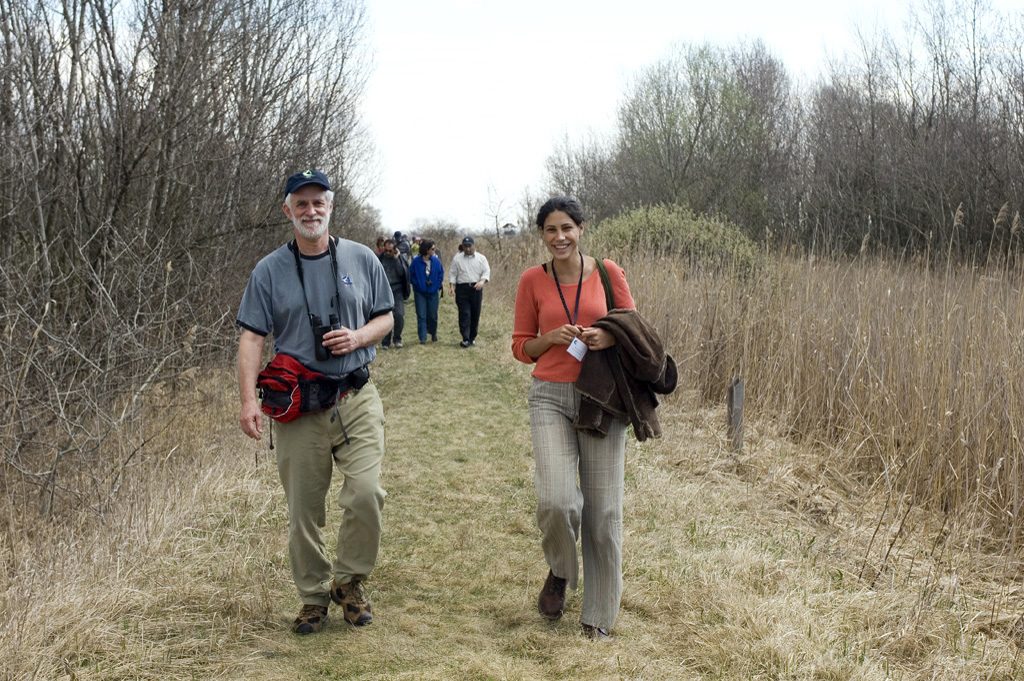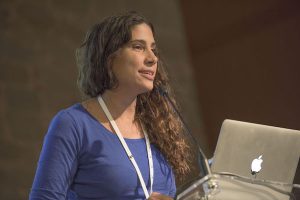In concert with QLF’s model of community-based conservation, Magda has found that the environment, and natural resources, provide an ideal starting point for cooperation. Magda explains: “You’re not talking about politics. You’re talking about basics; basic things that people depend on to live, so it’s a good starting point around which to bring people together.”
QLF Experiences
Middle East Conservation Exchange 2004
QLF Alumni Congress 2006
QLF Alumni Congress 2016
When many of us think of Darfur, Sudan, we first consider its tragic conflict. But people like Magda Nassef look beyond this conflict and focus on recovery. In fact, for the past seven years Magda has worked on rebuilding livelihoods affected by conflict in Darfur. Along with her colleagues at the United Nations Environment Program, Magda strives to restore proper natural resource management in Darfur, rebuild livelihoods dependent on these resources, and strengthen relationships and trust between government, communities and development partners to achieve these objectives in Darfur.
Magda received her master’s degree in biodiversity and conservation from the University of Leeds in 2003. She began her career working as a biologist for a consulting firm in Egypt. She then went on to work for Nature Conservation Egypt, a small environmental NGO which aims to preserve Egypt’s natural heritage and advocates for sustainability in the region.
In 2004, Magda was introduced to Beth Alling. Over coffee, the two women discussed topics on the forefront of conservation, and Beth invited Magda to participate in the 2004 Middle East Conservation Exchange Program. The Fellowship connected Magda to the entire QLF network, and she values this connection greatly. “As the QLF network grows,” she says, “your individual network grows as well, so it’s really a two-way relationship.”
Magda maintained her relationship with the QLF network as she left Nature Conservation Egypt and spent several years in London researching pastoralism, a mobile type of livestock rearing. Magda explains pastoralism with simple clarity: “Sometimes it rains,” she says, and “sometimes it doesn’t.” She continues: “Livestock are mobile, so herders just pick up their homestead and move to wherever pastures exist”. Because of pastoralism’s natural adaptability to a variable and changing environment, theories of pastoralism are applicable to methods of sustainable land use.
In 2010, Magda left London and began work for the United Nations Environment Program (UNEP) in Darfur, Sudan. There, her background in sustainability, natural heritage protection, and pastoralism, in concert with QLF’s unique brand of community-based conservation, proved a cogent mixture to facilitate her work in conflict resolution and environmental protection.
Indeed, over the following seven years, Magda’s work with UNEP strikingly reflected the Middle East Conservation Exchange Program guiding principle of promoting peace, cooperation, and conflict-resolution through conservation. Magda’s major contribution in Sudan was as a leading contributor to a project focused on improving productivity of the Wadi El Ku seasonal river, an essential source of water in the region. Throughout their work on this project, Magda and her colleagues successfully increased productivity both by improving water use and management and by building trust and cooperation among communities, NGOs, and government.
Building this trust and cooperation is no easy task, because, as Magda explains, the history of conflict in Darfur has greatly increased tension among actors:
Darfur is an area that’s been conflict-affected for fourteen years now. So fourteen years of war affects people’s trust, and governing systems break down…. if communities are polarized and they no longer trust each other then it’s hard to restart a conversation about anything, really.
With this in mind, the UNEP operates as a “convener of actors” by facilitating collaboration and partnerships among polarized communities, government, and landowners to discuss best water management practices in the region.
In concert with QLF’s model of community-based conservation, Magda has found that the environment, and natural resources, provide an ideal starting point for cooperation. Magda explains: “You’re not talking about politics. You’re talking about basics; basic things that people depend on to live, so it’s a good starting point around which to bring people together”.

Magda walks with QLF Alumnus Tom Horn on a field site visit in Hungary, at the 2006 Alumni Congress. PHOTOGRAPH: GREIG CRANNA
Similarly, Magda recognizes a symbiotic relationship in her work between environmental protection and women’s rights. In Sudanese culture, she says, men and women “are both custodians of natural resources, but in different ways”. Because of this, UNEP works to amplify women’s voices in environmental discussions, and ensure that women’s perspectives are represented in decision-making.
As QLF and Magda well know, transcending boundaries and fostering collaboration among groups is not easily achievable; but it is made possible in small strides. Today, Magda continues to support UNEP’s mission in Darfur remotely from Cairo.







